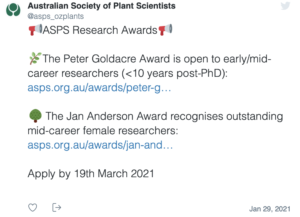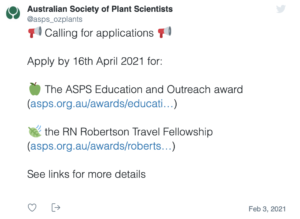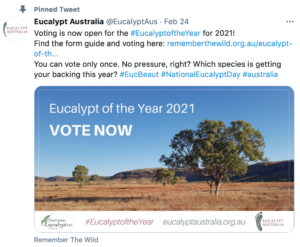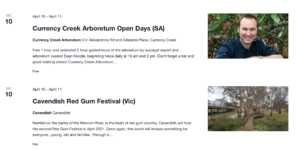Welcome to February 2021 Phytogen. All the best for university students in their orientation weeks and settling into learning for the year ahead.
In March and April 2021, are deadlines for our society awards. I hope you will be encouraged to apply and to encourage your students and colleagues. Details about all awards can be found here.
To inspire you, here is a wonderful report from the 2020 Peter Goldacre Award recipient, Dr Alex Wu from the University of Queensland.
Mathematical modelling to aid plant/crop science research by Dr Alex Wu, University of Queensland.
Improving crop productivity is important for safeguarding food security in the face of growing populations and increasing climate risks; genetic improvement approaches continue to play a key role. Fundamental plant science research generates new possibilities in which plants could be manipulated, but strategising whole-crop productivity improvement would need robust phenotypic prediction capabilities. Considerable rigour is exercised in predicting manipulation consequences, for example, from photosynthesis (pathway) to leaf (organ) level, however, complexities arising from scaling to the whole-crop level should not be overlooked for maximising crop productivity gains (Wu et al. 2016). The Peter Goldacre award recognises the contributions that I have made, during my postdoc in the ARC Centre of Excellence for Translational Photosynthesis, and with numerous collaborators, in advancing our skills in phenotypic predictions via development of a plant/crop simulation model from integrating multidisciplinary plant science knowledge.

Figure: Connections across scales of biological organisation can be captured by dynamic plant/crop models to enable robust phenotypic prediction at the whole-crop level. Modelling framework helps to unravel (dissect) further mechanisms and physiological basis for crop-level response. The fading arrows indicate reduced confidence when predicting consequences higher up in the scales if lacking considerations of complexities associated with genetic controls, environmental effects and interactions among plant growth and development processes.
Foreseeing how changes in components in particular pathway(s) would influence the whole crop is confounded by biological complexity associated with interacting mechanisms and physiological processes, environmental effects and interactions among plant growth and development rules. It’s complex! The challenges were to identify key complexities involved, capture them reliably via equations in a cohesive predictive modelling framework, and expand on biological functions of model components so genetic perturbations can be represented via changing closely associated model coefficients. The development of a cross-scale model that links leaf photosynthesis to canopy growth and grain yield in C3 and C4 cereals is such a model; enabling robust phenotypic predictions for assessing impacts on whole-crop responses from photosynthetic perturbations (Wu et al. 2018; Wu et al. 2019; Leakey et al. 2019; Hammer et al. 2019). Developing adequate knowledge to facilitate communications with peers from other fields of research is key in transdisciplinary research.
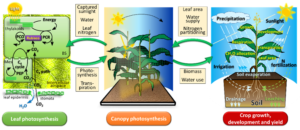
Figure: Cross-scale modelling framework connecting leaf photosynthetic functions with canopy growth and whole-crop grain yield (adapted from (Wu et al. 2019)).
Modelling can add valuable insight to plant/crop science research by unravelling the mechanisms and physiological basis for plant responses. Our modelling identified that enhancing leaf photosynthesis can improve grain yield under well-watered environments, but negatively affect crops in typical dryland production environments. Insight from analysing temporal crop attribute trends over the growth cycle suggests mechanisms to decouple photosynthetic rate from stomatal conductance is crucial for maximising crop productivity gains (Wu et al. 2019). Being able to efficiently conduct comparative analysis of different traits in much broader context, would help to paint a more comprehensive picture, which can lead to novel perspectives in fundamental plant science research.
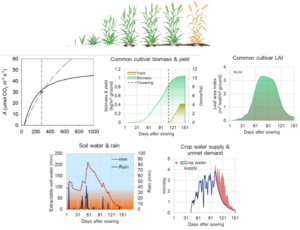
Figure: Details involved in simulating a wheat crop over its growth cycle. Bottom panels show simulation of leaf photosynthetic CO2 response and temporal trajectories of crop above ground biomass, grain yield, leaf area index, extractable soil water, crop water supply and unmet demand (red shading in the bottom right). Texts as part of the illustration only.
 In my current research as an ARC DECRA Fellow at the University of Queensland in the Centre for Crop Science, I will improve knowledge on plants’ strategies for yield potential and drought tolerance by conducting plant gas-exchange and physiological studies on crop species and genetically modified genotypes. This knowledge will be used to further advance the cross-scale model and unlock new phenotypic prediction capabilities. Plant traits will be captured by the cross-scale model and will be mixed and matched in a cross-scale model driven crop optimisation algorithm to identify avenues for whole-crop improvement. This experiment-modelling synergy would establish a new method for designing crops to strategise whole-crop improvement to meet future challenges.
In my current research as an ARC DECRA Fellow at the University of Queensland in the Centre for Crop Science, I will improve knowledge on plants’ strategies for yield potential and drought tolerance by conducting plant gas-exchange and physiological studies on crop species and genetically modified genotypes. This knowledge will be used to further advance the cross-scale model and unlock new phenotypic prediction capabilities. Plant traits will be captured by the cross-scale model and will be mixed and matched in a cross-scale model driven crop optimisation algorithm to identify avenues for whole-crop improvement. This experiment-modelling synergy would establish a new method for designing crops to strategise whole-crop improvement to meet future challenges.
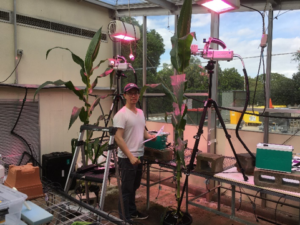
Above right: Alex in the office with the cross-scale model in the background; Above: Alex in the glasshouse taking plant gas-exchange measurements.
Alex is currently looking for a PhD student to join him on his new DECRA project on a plant physiology–modelling journey at UQ. Please help share the news.
Email: c.wu1@uq.edu.au
Webpage: www.qaafi.uq.edu.au/profile/405/alex-wu
References
Hammer G, Messina C, Wu A, Cooper M (2019) Biological reality and parsimony in crop models—why we need both in crop improvement! in silico Plants 1 (1).
Leakey ADB, Ferguson JN, Pignon CP, Wu A, Jin Z, Hammer GL, Lobell DB (2019) Water Use Efficiency as a Constraint and Target for Improving the Resilience and Productivity of C3 and C4 Crops. Annu Rev Plant Biol 70 (1):781-808.
Wu A, Doherty A, Farquhar GD, Hammer GL (2018) Simulating daily field crop canopy photosynthesis: an integrated software package. Funct Plant Biol 45 (3):362-377.
Wu A, Hammer GL, Doherty A, von Caemmerer S, Farquhar GD (2019) Quantifying impacts of enhancing photosynthesis on crop yield. Nature Plants 5 (4):380-388.
Wu A, Song Y, van Oosterom EJ, Hammer GL (2016) Connecting Biochemical Photosynthesis Models with Crop Models to Support Crop Improvement. Frontiers in Plant Science 7:1518.
The Jan Anderson Award had two amazing recipitants in 2020. Dr Crystal Sweetman from the University of South Australia has written a report for you to enjoy below. Our other recipient, Dr Kristine Crous from the Hawkesberry Institute, University of Western Sydney will write about her experience for Phytogen in May 2021, stay tuned.
Jan Anderson report by Dr Crystal Sweetman, Flinders University of South Australia.
Firstly I’d like to say that I was truly honoured to be a joint recipient of the ASPS Jan Anderson award in 2020. I have been a member of ASPS since my Honours year and enjoyed the great support that this society gives young plant researchers, including travel and networking opportunities. As a recipient of this award I have gained an opportunity to share some of my ideas and achievements and this has been a great motivator for me. I also want to acknowledge the Flinders Plant Molecular Physiology Research Group and past students involved in the research, as well as my wonderful partner and our families who have made it possible to maintain a scientific career during my new venture as a parent.
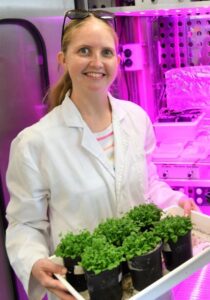
The award recognises work I completed in recent years as a research associate at Flinders University, where I have been using molecular and biochemistry tools to progress the field of plant mitochondrial respiration and abiotic stress tolerance. In particular, I functionally characterised the main enzyme responsible for NADH oxidation at the interface of mitochondria and the cytoplasm and demonstrated the importance of this “type II” NADH dehydrogenase during environmental stress. The enzyme is part of an alternative pathway of respiration (AP) that is unique to plants and lower eukaryotes. The AP can mitigate the production of potentially harmful reactive oxygen species during stress and balance metabolic and energy-related processes in the cell by uncoupling respiration from ATP synthesis. I also provided the first evidence of cooperative function between type II NADH dehydrogenase and another key component of the AP, alternative oxidase, which together enable a complete bypass of the classical mitochondrial electron transport chain in plants. Elimination of either enzyme impaired the ability of Arabidopsis plants to withstand and recover from a combined drought and elevated light stress, while enriching both enzymes improved tolerance and recovery (Sweetman et al. 2019a). Together these are promising candidates for selective breeding strategies or engineering plants with improved abiotic stress tolerance.
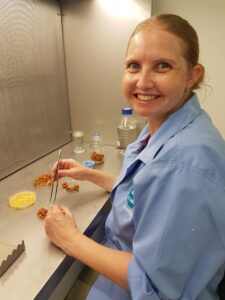
Work in our laboratory continues to explore the mechanism of the AP in environmental stress tolerance and expands the system to cereals and legumes. We have identified the relevant stress-responsive AP genes and their co-expression relationships in rice, barley, chickpea and other legumes (Wanniarachchi et al. 2018; Sweetman et al. 2019b; Sweetman et al. 2020). More than 25% of respiration from healthy chickpea leaf mitochondria can occur via the AP so there is huge potential for improving plant growth and energy production by modulating this pathway. I hope that my research can guide the development of more sustainable and resilient crops, to cope with increasing environmental growth challenges.
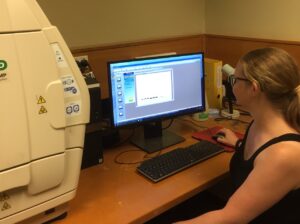
Sweetman et al. (2019a) Plant Physiol. 181:774-788
Sweetman et al. (2019b) Plant, Cell & Env. 42:71-84
Wanniarachchi et al. (2018) Int. J. Mol. Sci. 19:915
Sweetman et al. (2020) Int. J. Mol. Sci. 21:3844
Events
Science Meets Parliament, Tuesday 2nd March – Thursday 1st April 2021. Registration closes 28th February 2021.

Please let us know (@asps_ozplants) if you have any interesting events.
Save the date…. Thursday and Friday 25th & 26th November 2021 for ASPS hybrid virtual and state meetings. More details to follow. You will be hearing from your state representatives. In the meantime make sure your membership is up to date and encourage students and colleagues to join us.
ASPS Membership: https://www.asps.org.au/members
National Eucalypt Day, Tuesday 23rd March 2021
visit: https://www.rememberthewild.org.au/eucalypt-of-the-year-2021/
and vote for eucalypt of the year 2021, revealed March 2021. Post your favourite photos #Eucalyptoftheyear and tweet to: @Eucalyptaus
International Womens Day Monday 8th March 2021.

